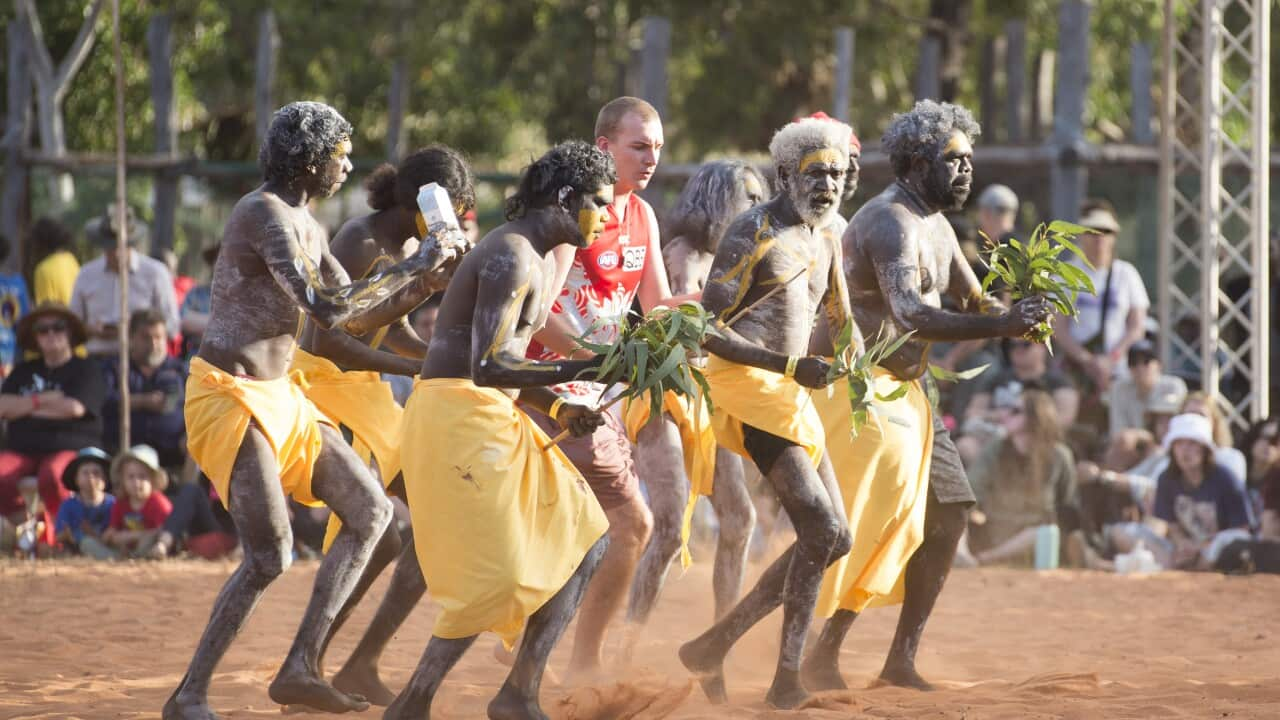Highlights
- Aboriginal and Torres Strait Islander peoples' relationship with the Chinese goes back 400-500 years
- The Chinese bought trepang, or dried sea cucumber, from the Yolngu people of East Arnhem Land
- Experts say Australia ought to face current tensions with China by focusing on the two countries’ trade foundations and strength of past trade relations
There’s a common belief that the first Garma Festival began in 1999 with a backyard barbecue before it turned into what it is today.
But many people may be unaware that the meaning of Garma goes back hundreds of years and is based on the relationship between the Chinese, Macassan (on the island of Sulawesi, now part of Indonesia) and the Yolngu people of East Arnhem Land in Australia.
That was because the Garma ceremony back then was used to promote prosperity in trade, according to researcher of Australian Aboriginal affairs at the University of Melbourne, Professor Peter Botsman.
Every season, as the monsoon winds began to blow, the Macassans would come to fish and trade with the Yolngu people for sea cucumbers, which they called trepang.
“It was a very harmonious and good relationship where tobacco, clothing, metal and money was exchanged for the right to harvest trepang and take it back [to Macassar],” said Prof Botsman, who spoke to SBS Chinese from the Garma Festival. Chinese traders would then arrive in Macassar to take the trepang back to Beijing, where it was a considered a culinary delight and an aphrodisiac.
Chinese traders would then arrive in Macassar to take the trepang back to Beijing, where it was a considered a culinary delight and an aphrodisiac.

University of Melbourne's Professor Peter Botsman says China's trade with Australia dates back 400-500 years. Source: SBS
“The Chinese relationship was a secondhand one. It was the Macassans who would trade with China,” he said.
“We know before any white settlement in Australia, this trade had been going on.
The archaeology is starting to emerge. We’re finding ceramic pipes. We’re finding adobe houses. We’re finding all these things that suggest hundreds and hundreds of years of trade between China and the Yolngu people.
But the trade relationship came to an end in 1901 when Australia became federated and foreign countries were forbidden from trading “ironically with the Traditional Owners of this land”.
“Everyone was devastated,” said Prof Botsman, “because they wanted the trade to continue”.
“Everyone thinks bauxite, iron ore … This was the big trade with China. No, this was trepang, or dried sea cucumber, which is still a very valuable commodity in China.”
Prof Botsman said after Federation, when Garma goodwill ended, there were some terrible incidents with fish trade, including with Japanese fisherman who weren’t observing Garma protocols.

Prime Minister Anthony Albanese with Yothu Yindi board member Djaawa Yunupingu during the 2022 Garma Festival. Source: AAP
He said despite the relationship hiatus, there had been recent exchanges between the Yolngu people and the Chinese in Beijing through collaborations between painters and their art.
As the four-day Garma Festival drew to a close on Monday, Prof Botsman said it was important for people to be reminded that amid the current diplomatic tension with China, Aboriginal and Torres Strait Islander peoples' relationship with the Chinese goes back 400-500 years.
"Garma could help reset the Australia's relationship with China," he said.
He added Prime Minister Anthony Albanese understood the significance of Garma’s past Chinese connection as a result of having visited the area a few times.
“It’s a strong relationship and we need to be celebrating that as part of the foundation of our good relationship across the countries,” Prof Botsman said.
“So that’s why the Garma Festival is very profound for the Australia-China relationship.”

